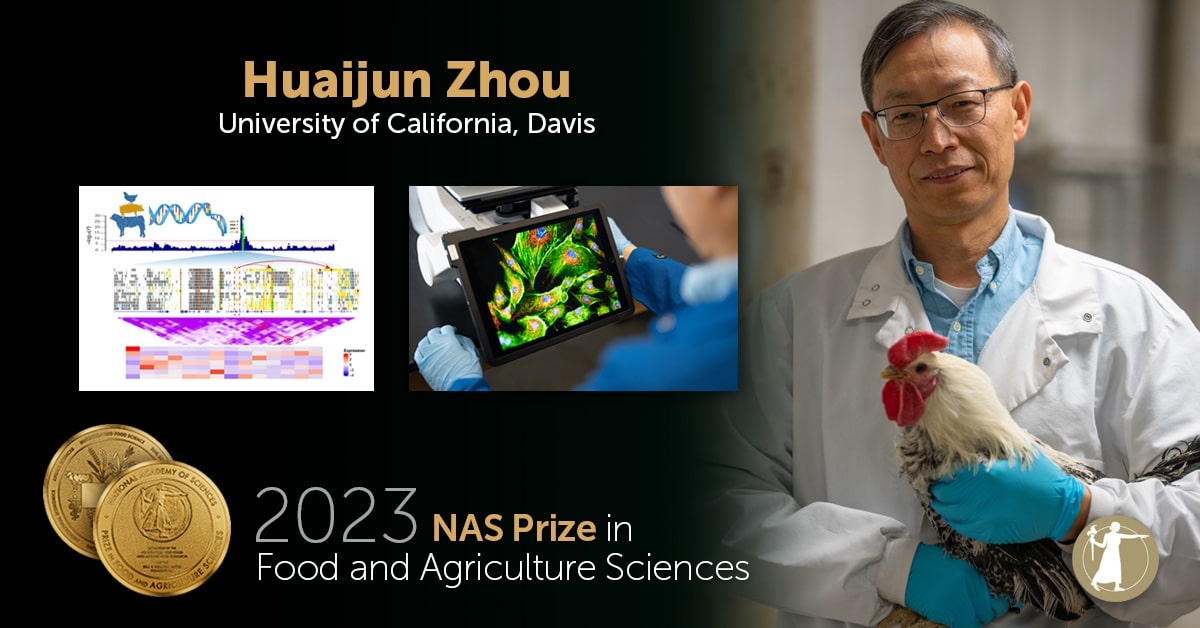 2023 NAS Prize in Food and Agriculture Scienced: Dr. Huaijun Zhou, University of California, Davis
2023 NAS Prize in Food and Agriculture Scienced: Dr. Huaijun Zhou, University of California, Davis
The world population is projected to reach nearly 10 billion people by 2050, requiring stable, widely accessible sources of food and nutrition. While livestock and poultry provide protein and essential micro and macro nutrients for human health, infectious diseases and heat stress from a changing climate are major challenges for animal production. The National Academy of Sciences (NAS) is awarding Dr. Huaijun Zhou of the University of California, Davis the 2023 NAS Prize in Food & Agriculture Sciences for his multidisciplinary approach to animal and poultry genome research, which supports improved global food security through genetic enhancement of poultry health and production efficiencies. His work includes a special emphasis on addressing the disease and climate challenges facing poultry producers in Africa.
The NAS Prize, endowed by the Foundation for Food & Agriculture Research (FFAR) and the Bill & Melinda Gates Foundation, is awarded annually to a mid-career scientist at a U.S. institution making an extraordinary contribution to agriculture or to the understanding of the biology of a species fundamentally important to agriculture or food production. The Prize is presented with a medal and $100,000 cash award.
Newcastle disease, a respiratory illness, is the most devastating poultry disease in Africa. The disease disrupts food security in low-income countries on the continent and impacts the livelihood of many women, who traditionally tend to chicken flocks both for their families’ sustenance and to earn income. Increasingly severe impacts of climate change also pose a threat to poultry production. Zhou’s research is identifying genetic variants in poultry that increase resilience to disease and heat stress.